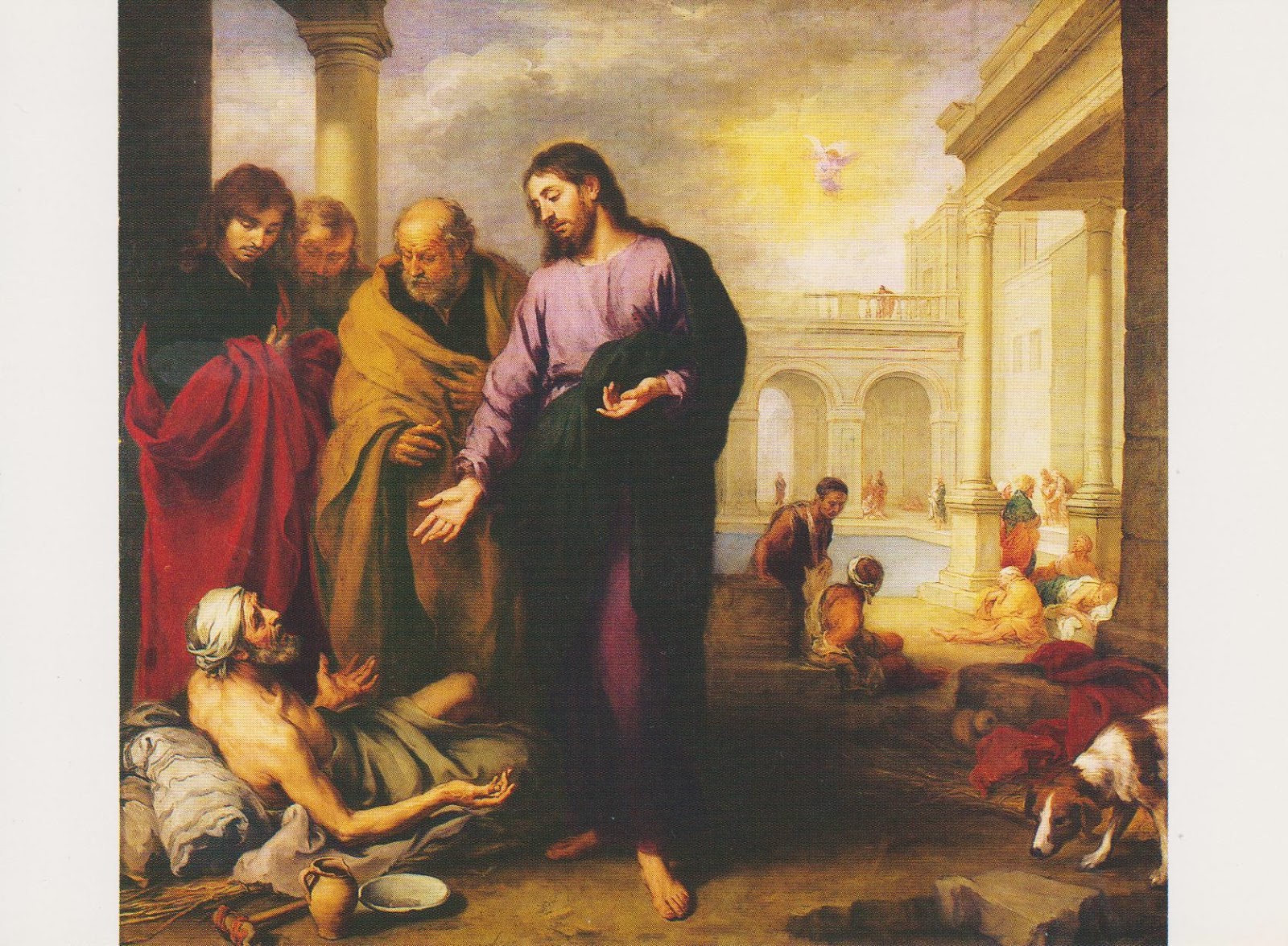4th Epiphany
John 5: 1-18
Some time later, there was a
Jewish feast, and Jesus went up to Jerusalem. Now there is in Jerusalem, near
the Sheep’s Gate, a pool, called Bethesda in Hebrew, which is surrounded by 5
covered porches. Here lay a great many invalids, the blind, the lame
[crippled], the weak [withered], waiting for the water to begin moving. For
from time to time a powerful angel of the Lord descended into the pool and
stirred up the waters. The first one in the pool after such a disturbance would
be cured of whatever ailment he had.
And there was a certain man there who had been an
invalid for 38 years. When Jesus saw him lying there and became aware that he
had been ill for so long, he asked him,
“Do you want [have the will] to become whole?”
The invalid answered him, “Lord [Sir], I have no
one to help me into the pool when the water is stirred. While I am trying to
get in, someone else goes down ahead of me.”
Then Jesus said to him, “Rise up, take up your
pallet, and walk.” At once the man was healed
and picked up his pallet and walked.
However it was the Sabbath on that day. Therefore
the Jewish leaders said to the man who was healed, “It is the Sabbath; the law
forbids you to carry your pallet.”
But he replied, “The man who healed me said to me,
“take up your pallet and walk!”
And they asked him, “Who is the man who said to you
‘take it up and walk’?”
But the one who was healed had no idea who it was,
for Jesus had slipped away, as there was a crowd in the place.
Later, Jesus found him in the Temple and said to
him, “Take to heart what I say: Behold, you have become whole. Sin no more,
lest your destiny bring you something worse.”
The man went away and told the Jewish leaders that
Jesus was the one who had healed him. That is why they persecuted Jesus and
sought to kill him, because he did these things on the Sabbath.
Then he himself countered them with the words,
“Until now my Father has worked, and from now on I also work.”
Then they sought all the more to kill him, because
not only had he broken the Sabbath, but also because he had called God his own
Father and had set himself equal to God.
1st February
Trinity
John 5: 1-18
In the life of the plant, the blossom is both an end and a
beginning. It is the culmination of a long process of leafing and
transformation. At the same time, in order to serve Life, the blossom must be
pollinated, fructified by bees or wind, and set fruit. For it is the fruit and
its seeds that ensure that life will continue.
The man who was ill for thirty-eight years experiences a
blossoming in the warm urging of the Christ Sun. He rises and walks. But this
healing will not serve his ongoing life unless the man allows the grace and
mercy shown to him to be fructified, to set fruit within his own soul. He
cannot continue inwardly in the same old way, cut off from the society of his
fellow human beings, cut off from the workings of the angels.
Unfortunately he seems to misunderstand what his re-entry
into society means. He returns to the leadership and tells them who was the
source of his healing. This sets into motion a long series of events in which
Jesus is persecuted and eventually killed.
And yet—even this serves a greater pattern. For Christ’s
death becomes the portal to higher Life for us all.
We all participate in the killing of the Christ impulse for
love and healing. We stray from love; we deny love; we are too weak to accept
and participate in love.
And yet we are here, at the service, in His presence. We
take in His healing love in bread and wine. He supplies what we lack, because
we have answered the question he poses to us all—Is it your will to become
whole?


















